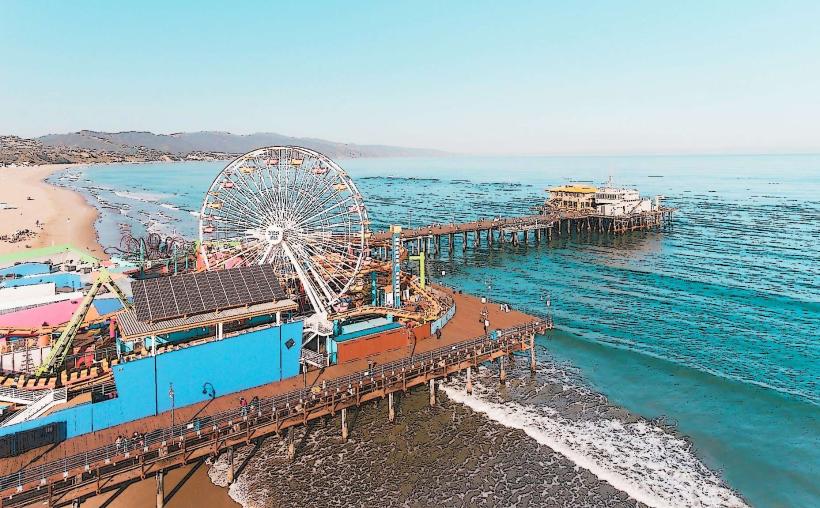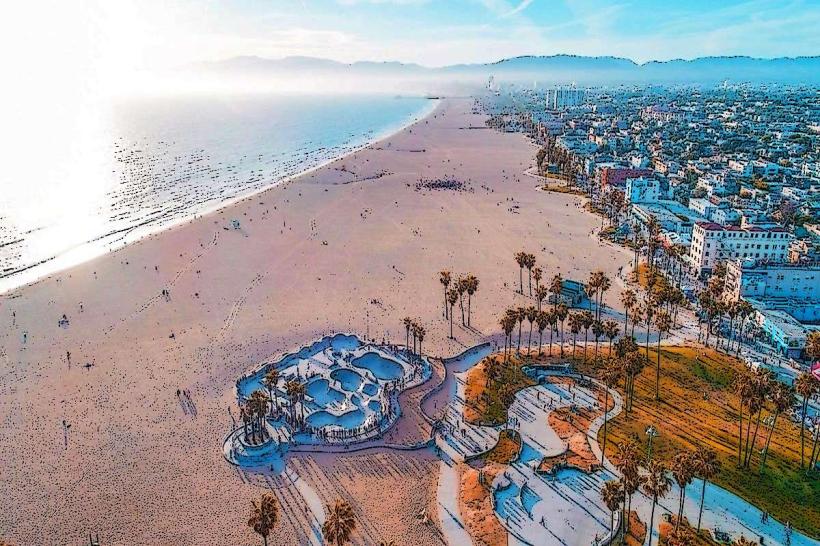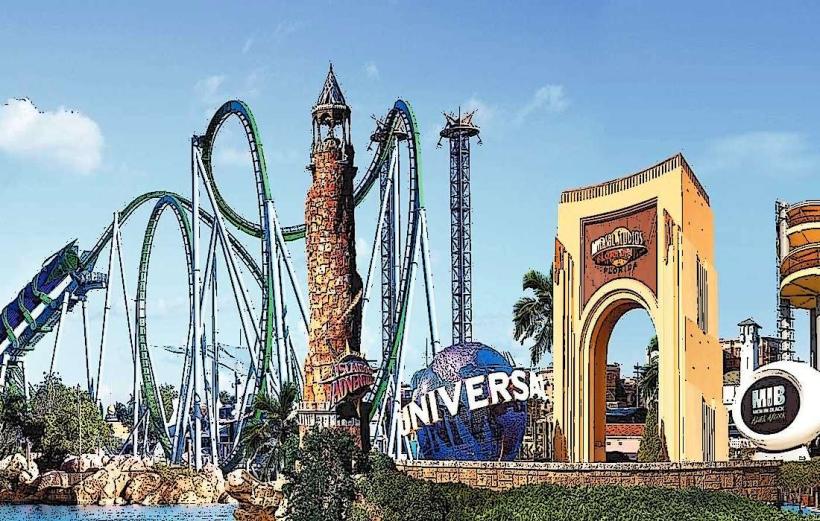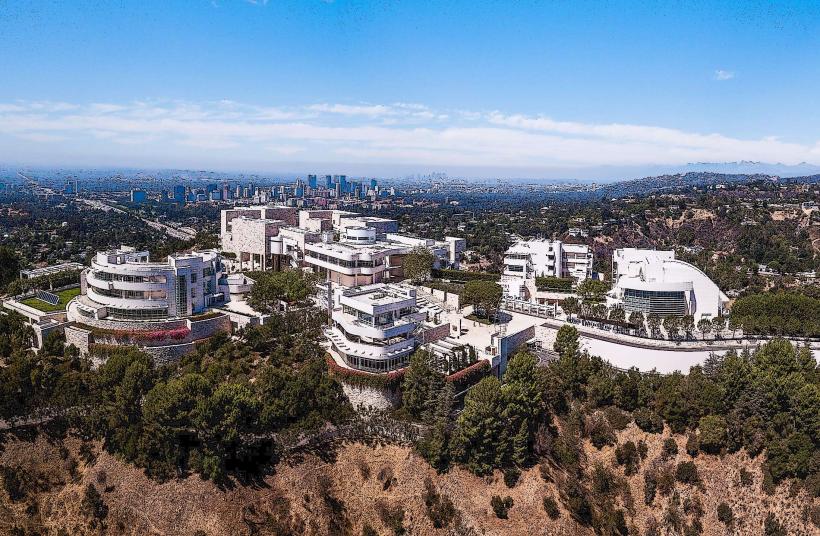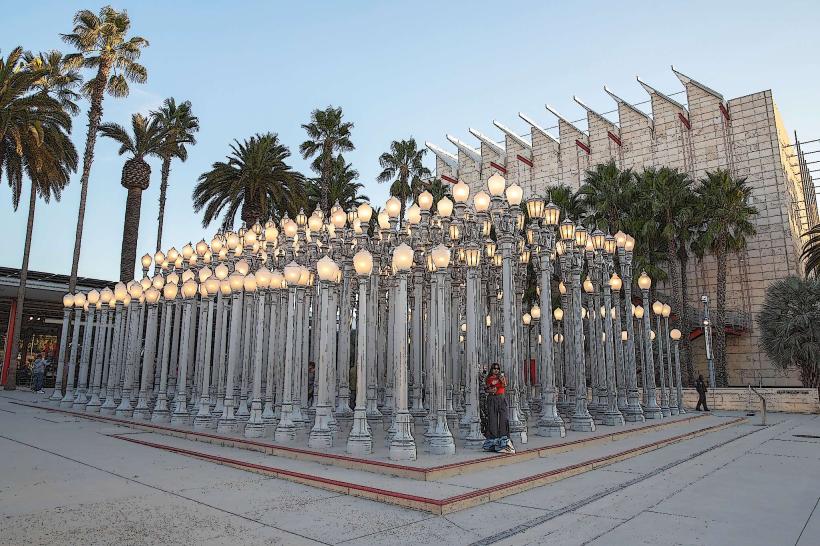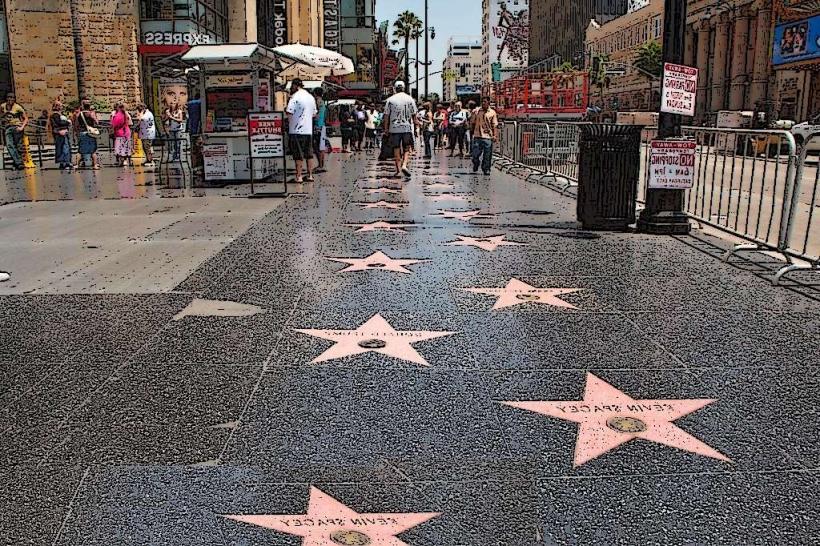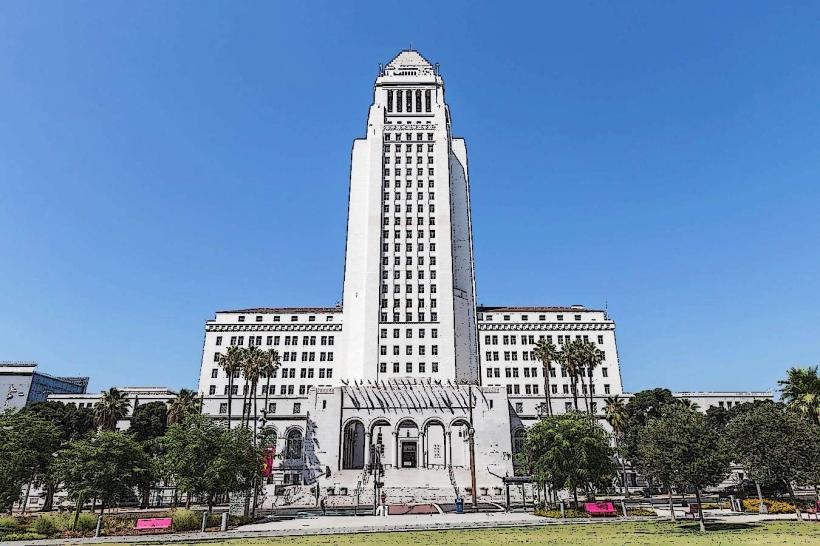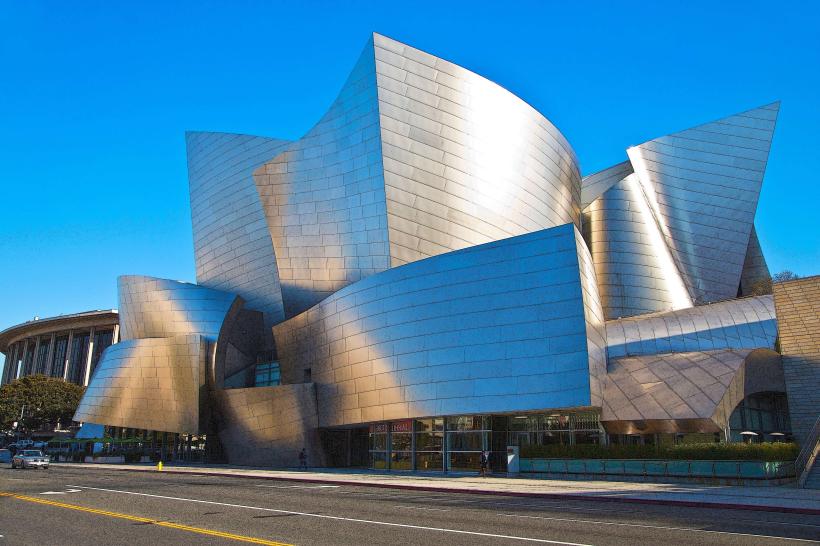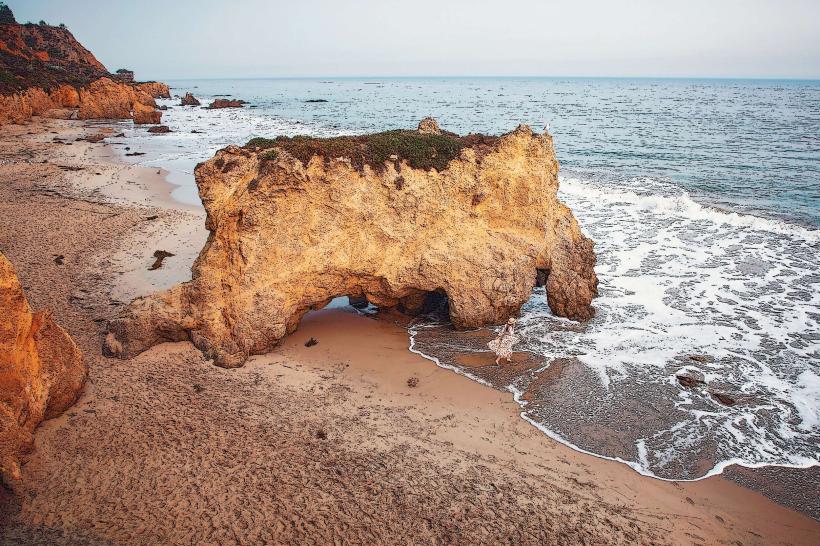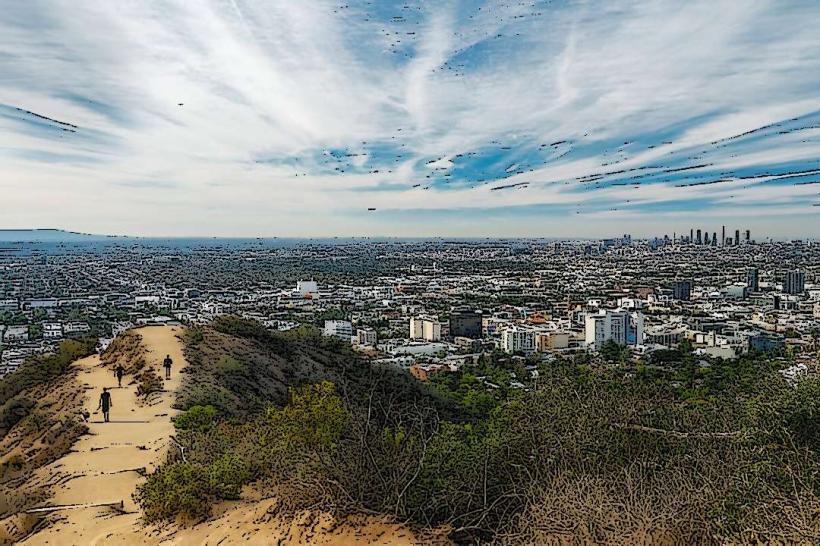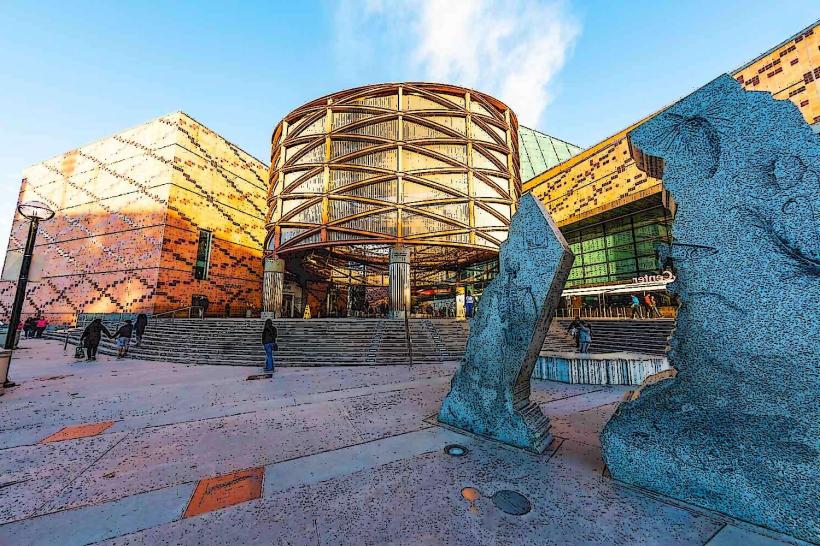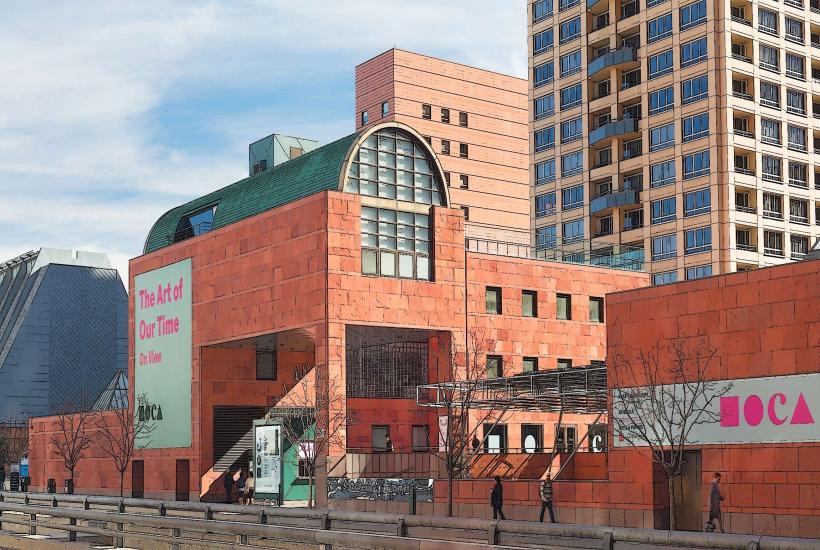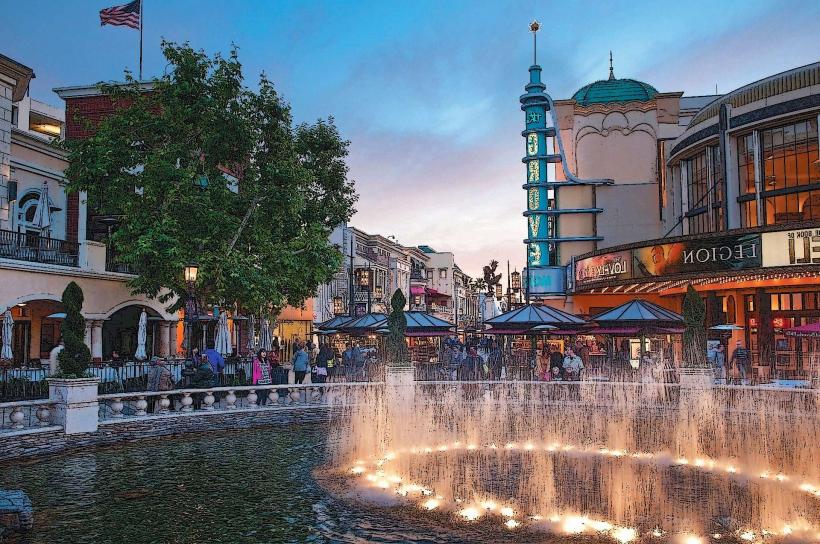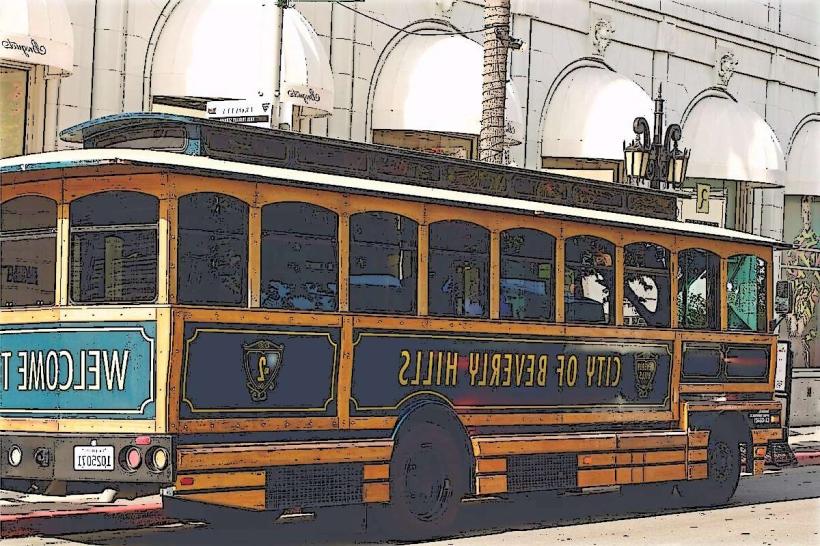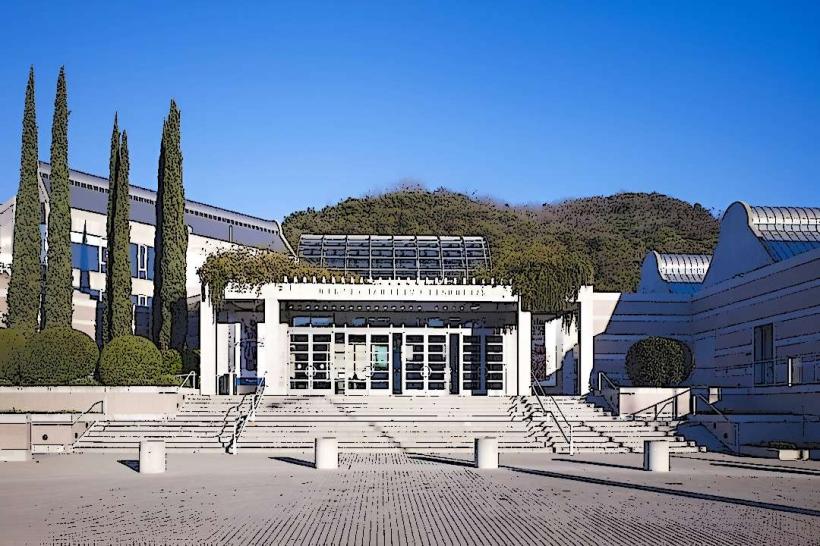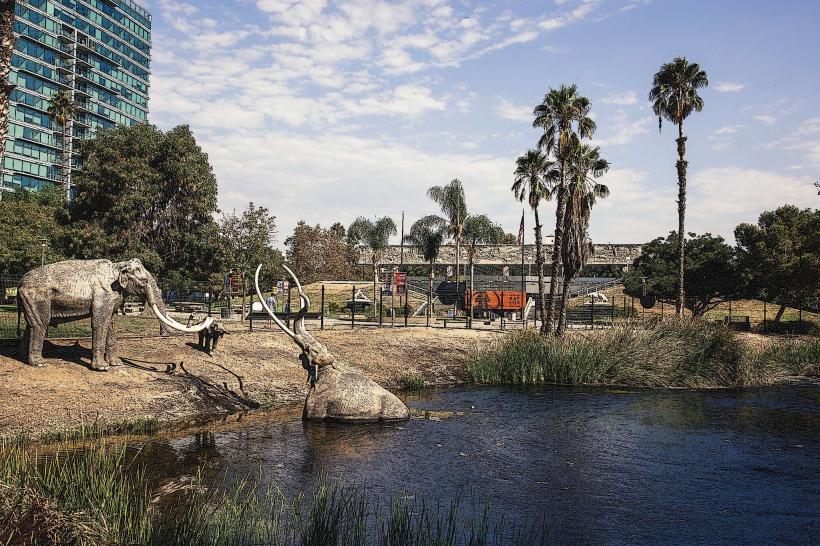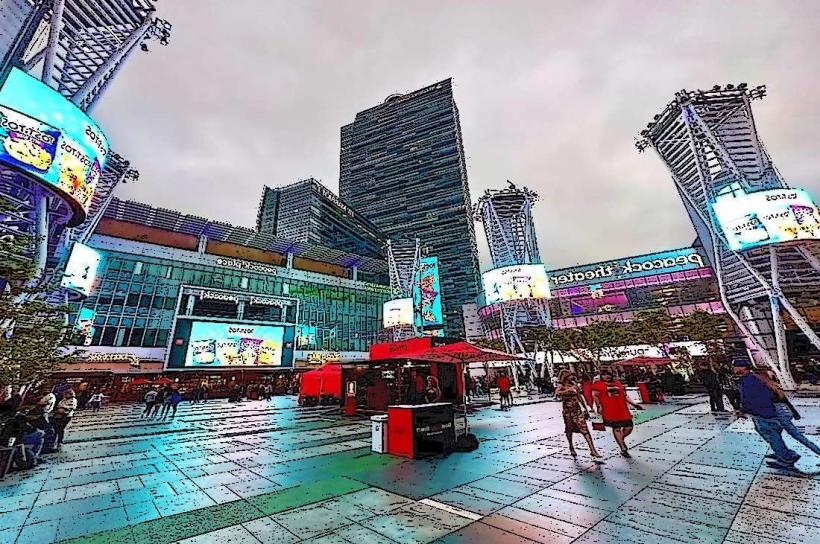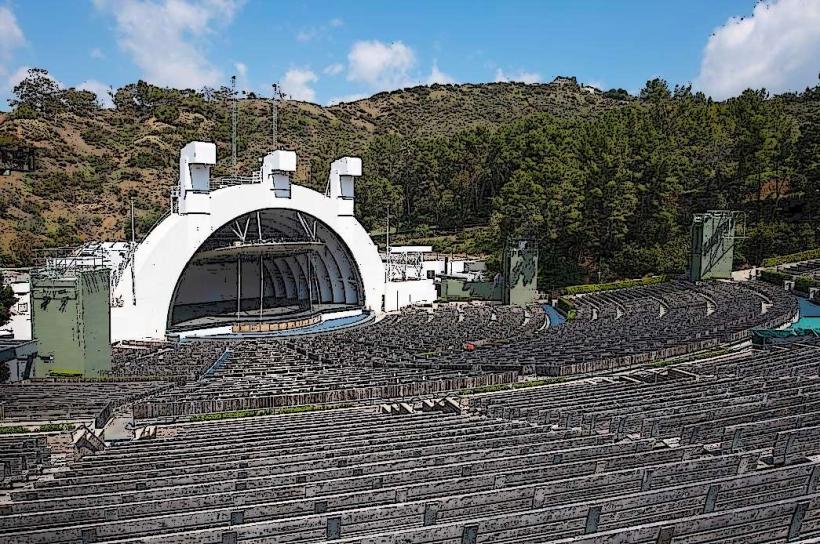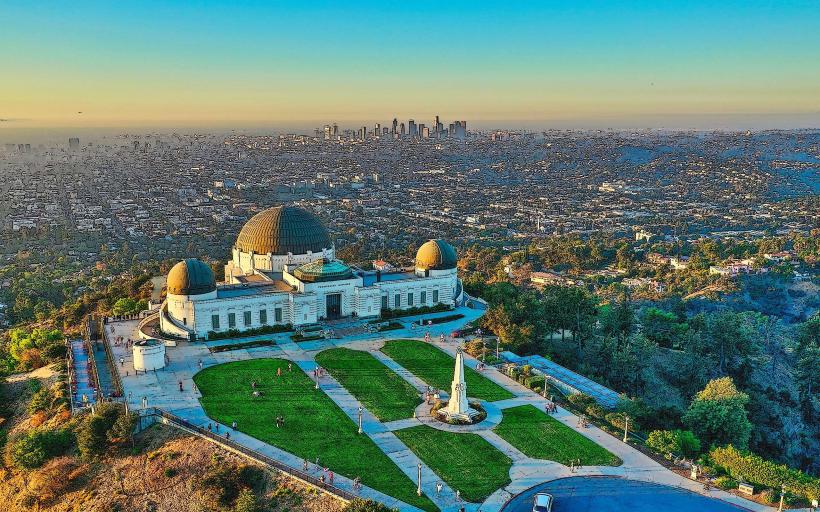Information
Landmark: Natural History Museum of Los AngelesCity: Los Angeles
Country: USA California
Continent: North America
Natural History Museum of Los Angeles, Los Angeles, USA California, North America
The Natural History Museum of Los Angeles County (NHM) is one of the oldest and most significant natural history museums in the United States. Located in Exposition Park, Los Angeles, California, the museum is a hub for learning about the natural world, with collections that span millions of years of Earth's history. Below is a detailed overview of the Natural History Museum of Los Angeles:
History and Background
Established: The museum was founded in 1913 and originally started as part of the Los Angeles County Museum of History, Science, and Art. It became a standalone institution in 1961, and since then, it has expanded significantly in both size and scope.
Mission: The museum’s mission is to inspire a deeper understanding of the natural world and human history through the presentation of scientific research and educational programs. It aims to foster curiosity, wonder, and a greater appreciation for the natural world.
Location: Situated in Exposition Park, which is home to other cultural and recreational facilities like the California Science Center and the Los Angeles Memorial Coliseum, the museum is in a central area of Los Angeles and is easily accessible to the public.
Architecture
Building Design: The museum’s primary building, the South Campus, was designed in a Beaux-Arts style by architect John C. Austin and was originally completed in 1913. Its grand neoclassical façade and decorative architectural details set the tone for a classical museum experience, aligning with the grandeur and prestige of early 20th-century cultural institutions.
Recent Renovations: The museum underwent extensive renovations in the 2000s, including the construction of new galleries and the addition of modern architectural features, such as the Glass Atrium that provides a bright and welcoming entrance. These changes were aimed at modernizing the museum while preserving its historical significance.
Exposition Park: The museum is located within Exposition Park, a cultural complex that includes several other major museums, open spaces, and a rich history dating back to the California Pacific International Exposition of 1935.
Exhibits and Collections
The museum’s exhibits cover a wide range of topics in natural history, including paleontology, biology, ecology, geology, and anthropology. Its collections are world-renowned for their depth and diversity, with millions of specimens housed in the museum's vaults.
Permanent Exhibits:
Dinosaur Hall: The Dinosaur Hall is one of the museum's most famous and popular exhibits. It features a vast collection of dinosaur fossils, including complete dinosaur skeletons, such as a Tyrannosaurus rex, Triceratops, and Brachiosaurus. The hall also explores the history of paleontology, with interactive displays and models that bring these ancient creatures to life.
Fossils and Minerals: In addition to the dinosaur exhibit, the museum houses a fossil and mineral collection, featuring fossils from a variety of prehistoric species, as well as precious and rare minerals. The Gem and Mineral Hall includes spectacular crystal displays and gemstones from around the world.
African Mammals: The African Mammal Hall is a stunning exhibit that showcases life-sized dioramas of African wildlife, including lions, elephants, giraffes, and zebras. These dioramas help visitors understand animal behavior and the diverse ecosystems in which they live.
Birds and Mammals of California: This exhibit focuses on the wildlife of California, showcasing various native bird and mammal species, such as bears, bobcats, mountain lions, and seabirds. The exhibit provides insight into the state's diverse environments, from coastal regions to desert landscapes.
Gem and Mineral Hall: The Gem and Mineral Hall is one of the museum’s most visually stunning exhibits, displaying a dazzling array of precious gems, minerals, and crystals. The hall includes pieces like giant amethyst geodes, emeralds, and diamonds, as well as interactive displays that explain the geology behind the formation of these stunning natural wonders.
Discovery Center: The Discovery Center is an interactive space aimed at younger visitors and families, offering hands-on activities that teach children about natural history and science. The center features fun educational exhibits and tools for learning about animals, plants, fossils, and more.
Special Exhibits:
The museum regularly features temporary exhibitions that explore various topics in natural history and science, often with multimedia presentations, interactive displays, and traveling exhibits from other museums. These exhibits change periodically and offer new insights into current scientific discoveries and cultural issues related to nature and the environment.
Recent Exhibits: The museum has hosted various special exhibits, such as the "Wildlife Photographer of the Year" exhibition, which showcases stunning wildlife photography, and "Chocolate: The Exhibition", which explored the history, culture, and science of chocolate.
Research and Education
The museum is not only a place for public education and enjoyment, but it also serves as a center for scientific research. It has an extensive collection of specimens used for ongoing research in the fields of paleontology, anthropology, entomology, and botany. The museum collaborates with other institutions, universities, and researchers to conduct studies and advance knowledge in the natural sciences.
Research Institutes: The museum houses several specialized research institutes, such as the Dinosaur Institute and the Entomology Department, where researchers work on uncovering new findings related to fossils, ecosystems, and evolutionary biology.
Educational Programs: The museum offers a variety of educational programs for visitors of all ages. These include school field trips, teacher workshops, and family programs, which engage visitors in hands-on learning experiences related to the exhibits.
Public Lectures and Events: The museum hosts regular events such as lectures, workshops, and family-friendly activities. These events provide opportunities for visitors to learn directly from scientists, educators, and experts in the field.
Visitor Experience
Interactive Exhibits: Many of the museum’s exhibits include interactive components such as touch screens, augmented reality experiences, and hands-on displays, allowing visitors to engage with the material in a more immersive and educational way.
Guided Tours: The museum offers guided tours for visitors who want a more in-depth experience of the exhibits. These tours are led by knowledgeable museum educators and are available for school groups, families, and tourists.
Museum Store: The museum store offers a wide variety of educational products, including books, toys, and gifts related to the museum’s exhibits. Visitors can take home a piece of the experience, whether it’s a dinosaur-themed toy for children or a book about paleontology for adult enthusiasts.
Dining: The museum features cafes and dining options for visitors to enjoy during their visit, including the Nature's Table Café, which offers a variety of healthy, sustainable meal options.
Sustainability and Conservation
The Natural History Museum is committed to promoting sustainability and environmental conservation. It is involved in efforts to protect wildlife, preserve natural habitats, and promote biodiversity. The museum advocates for the responsible stewardship of the Earth’s resources through educational programs, exhibits, and partnerships with conservation organizations.
Conclusion
The Natural History Museum of Los Angeles County is a premier institution for natural history in the U.S., offering fascinating exhibits and interactive experiences that engage visitors in the wonders of the natural world. Whether you’re exploring prehistoric fossils, marveling at African wildlife, or delving into earth sciences, the museum provides a wealth of knowledge and an immersive environment for learners of all ages. As one of the key cultural landmarks in Los Angeles, it plays an important role in preserving and sharing the history of life on Earth while inspiring future generations to appreciate and protect the world around them.

